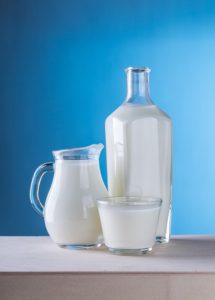Dentist Roanoke
 Calcium is an important mineral for building strong, healthy teeth. Not everyone can tolerate the lactose found in dairy, which is often a prime source for calcium. There are a wide variety of options available to get the calcium you need. Here are six options rich in calcium:
Calcium is an important mineral for building strong, healthy teeth. Not everyone can tolerate the lactose found in dairy, which is often a prime source for calcium. There are a wide variety of options available to get the calcium you need. Here are six options rich in calcium:
Canned Seafood
Canned seafood, such as sardines and salmon, can be an excellent source of calcium. These inexpensive options contain more calcium than their fresh counterparts. Canned seafood has small, soft, edible bones that are generally unnoticeable but can be a great way to add calcium to a salad or another dish.
Alternative Milk Products
Soy, rice, and almond milks offer added calcium and can be used as a milk substitute in many dishes. Experiment with different varieties to determine which flavor you like the most for each use. Try one of these milk alternatives on cereal or use in a cooked dish. Soy, rice, and almond milks are available in a variety of flavors, including plain, sweetened, unsweetened, vanilla, and other options.
Green Vegetables
Green vegetables are a prime source of calcium. Collard greens, mustard, turnip, and dandelion greens, Chinese cabbage, spinach, kale, okra, and broccoli are all great choices for adding calcium to your diet.
Milk
Milk is one of the best sources of calcium. One cup of cow’s milk can potentially contain a quarter of the recommended daily intake of calcium. Cow’s milk is also a cheap option, as it is generally priced below alternative options like almond milk. Additional benefits provided are good source of protein, vitamin A and vitamin D.
Yogurt
Most yogurts are high in calcium. The highest source of calcium from yogurt comes from the low-fat variety, while Greek yogurt has a lower amount of calcium than regular yogurt.
Cheese
A lot of cheeses are excellent sources of calcium. Parmesan cheese has the highest amount of calcium among cheeses. Softer varieties of cheese generally have less calcium than others. Aged and hard cheeses typically contain less lactose, making them easier to eat for people with dairy restrictions.
Calcium is important for developing and maintaining strong teeth and bones. If you have trouble digesting dairy, don’t let that stop you from consuming your recommended amount of daily calcium.
